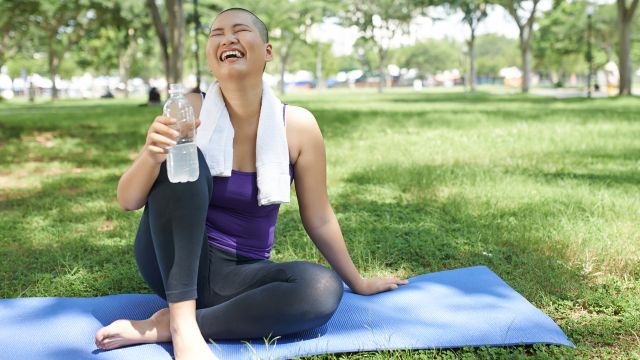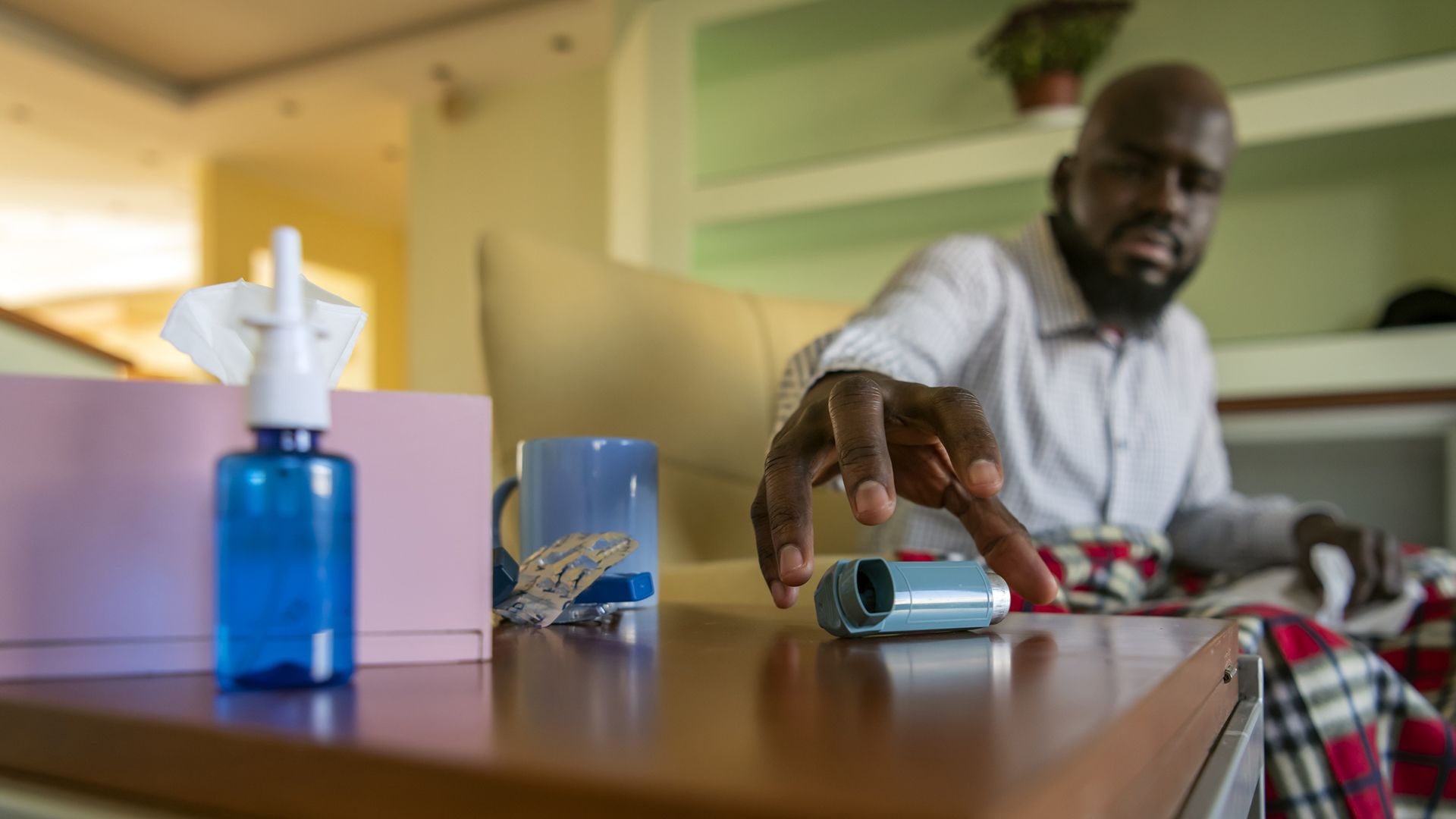Though being able to treat cancer is one of the marvels of modern medicine, treatment can steal strength and endurance from many people. But you can regain flexibility, muscle mass and energy by starting an easy exercise routine—either before or during treatment.
Why should you exercise?
Physical activity during treatment can better your health in a number of ways. It can cut anxiety and fatigue while improving your breathing, heart function, circulation and bone health.
Getting up and moving around can also help boost your mood and provide much-needed relief to feelings of low self-esteem and depression. It's a simple way to help yourself stay positive while you recover.
How can you exercise?
You don't need to run a half-marathon or lift massive weights to reap noticeable benefits. So, hold off on signing up for a new gym membership, and instead try low-impact exercises at home, like riding a stationary bike or practicing gentle yoga. Even small physical activities, like getting the mail or taking short walks, can make a big difference. Once you feel comfortable doing these, you can consider stepping up the intensity as you rebuild your health.
You can also think of ways to keep doing your favorite activities that you enjoyed before cancer. You can most likely still do these things with a little tweaking.
How can you be safe?
Remember these important tips to stay safe and healthy:
- Avoid germs. If you're exercising in a public place like a gym, be aware of germs, especially if your immune system isn't strong yet. Wipe down equipment before and after using it, and always wash your hands after a workout.
- Don't go alone. If you're especially fatigued or have poor balance, it's a good idea to exercise somewhere with people nearby, just in case you fall or need help. If you choose to work out at home, let a friend or loved one know so they can check on you later. Having an exercise buddy has the added bonus of making fitness more fun!
- Be smart about swimming. Swimming pools filled with chlorine can be bad news for people undergoing radiation therapy because the water can irritate the skin.
- Don't overdo it. Pay close attention to how you feel while exercising. Stop any activities that make you feel weak and overly tired.
Before trying a new fitness routine, check in with your doctor or physical therapist to find out what kind of exercise makes sense for your treatment plan. They can give you the right tools to take control of your health while keeping you motivated on your journey.





